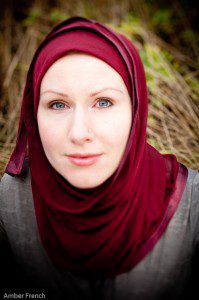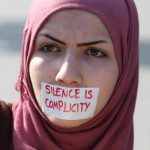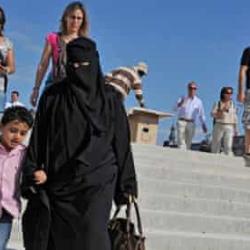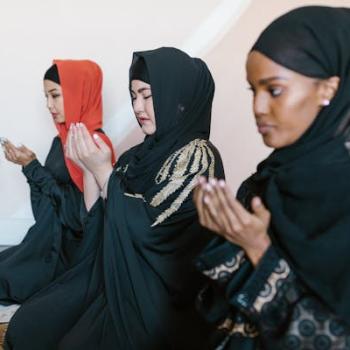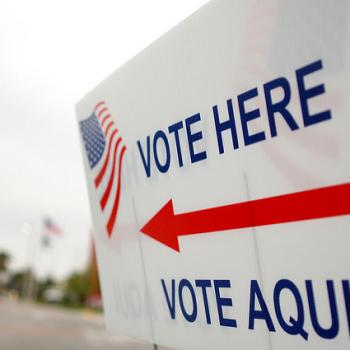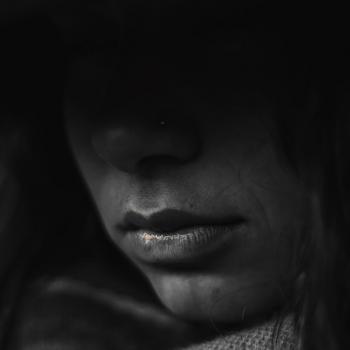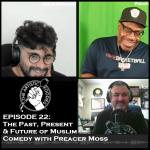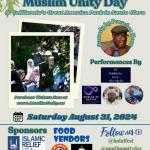It’s a bird, it’s a plane! It’s … well it’s not Superman, nor does this particular superhero fly. But with the introduction of the latest comic book superhero, Kamala Khan, we’re entering a whole new exciting world. Kamala, who is Marvel Comic’s newest superhero, is part of a growing effort to fill the void of female superhero series while “diversifying its offerings,” as reported by the New York Times.
Dubbed Ms. Marvel, Kamala was born from a conversation between Marvel editors Sana Amanat and Steve Wacker. Upon hearing Amanat’s stories about her growing up as a Pakistani Muslim-American, the two thought in the stories was the creation for a new kind of superhero – one who brings an altogether new original story to the superhero mythos. But who would write it?
They turned to G. Willow Wilson, author of the awarding winning Alif the Unseen and veteran comic book writer, who also is a Muslim convert. Wilson eagerly came on board and put her creative genius to work in fleshing out the story of Kamala. Altmuslim spoke with Wilson about how she came up with the story for Kamala, why the world is ready for a Muslim superhero and what it means to go through superhero puberty.
Altmuslim: So, is the world ready for a Muslim superhero?
G. Willow Wilson: We’re going to find out! It’s really how many people buy the book and if the story keeps people interested. This is the story about a Muslim American teen, but also about teens everywhere – trying to figure themselves out, live with their families, trying to manage all of the stuff that comes with being a high school student. It’s a very universal story with superpowers thrown in. The Muslim and Pakistani aspects are layers to the story.
AM: How did you and Ms. Amanat come up with her backstory and her location?
GWW: [Marvel] knew they wanted to have a young girl, who happened to be Muslim. In terms of background they left it open, and the location they left open. I thought through a lot of things before choosing [Kamala’s] ethnicity and location. I first thought of doing a Dearborn story with an Arab family in Michigan. Then I thought, let’s have a Desi (of South Asian descent) character, which brought us to New Jersey, and that let us be right across the river from Manhattan, which is the center of the Marvel universe. So, being in Jersey City is a fitting location for a junior superhero, who is longing to be across the river with the big superheroes.
I was born in New Jersey and lived there until I was about 10, so Jersey is in my roots. And, I do have fond memories of the place. Plus, now people know now that not all Muslims are Arab.
AM: What about Kamala’s family? It seems so stereotypical of a Pakistani background – dad wants Kamala to be a doctor, mom is afraid of her talking to boys.
GWW: I think when people read [Ms. Marvel], they’ll find there’s a lot of nuance. I didn’t want to start with making her the perfect poster child for Islam. That’s not the place that mainstream superheroes speak from. Somebody at Marvel pointed out that happy personal lives are not exactly the hallmarks of superheroes. So, her background gives her a place from which to define herself.
So you see a lot of the family dynamics, which as you know are far more complex then they seem to be. Her dad is very laid-back and wants the best for her, her brother is more conservative and wants everything to be halal. Her mom wants things to be happy and prosperous, but dignified in the larger world. Everything [for Kamala] happens from a place of love.
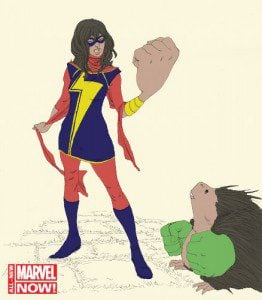
AM: Tell us a little more about Kamala – how does she discover her powers?
GWW: She discovers her powers somewhat haphazardly on the night of a party she happens to be at. So they’re not inborn. She does discover them as a teenager, very unexpectedly. She has to figure out how she got these powers and what to do with them. She doesn’t want to tell her friends, and she tries to keep them hidden.
She’s a polymorph: She can grow and shrink her entire body and take on appearance of other objects as well. Superheroes don’t often get their powers in one fell swoop. It’s like superhero puberty. You look like a series like Smallville – Clark Kent can’t fly right away. He gets speed first, then super strength, and the climax is that he learns he can fly. It’s the same with Peter Parker. He finds out the parts piece by piece. He can climb the walls, then he discovers spidey sense and then comes web slinging.
AM: Kamala idealizes [Marvel superhero] Carol Danvers, whom you said represents something she pines for: “strong, beautiful and doesn’t have any baggage of being Pakistani and ‘different.” Do you think many American Muslims harbor feelings like this? Do you think this will be a turn off or an identifying point?
GWW: That aspect of the story came from a lot of interesting conversations with the editor, Ms. Amanat, who grew up as a Pakistani American in the tri-state area. I wanted [Kamala] to have some kind of inner conflict when she started out. If she started out as a perfectly adjusted happy teen, then you’re at the end of the story. She has to go through a period of questioning — what kind of ideal do I want to strive for? Who do I want to be? And then the question is, how healthy is it to have these ideals? To be skinny, smarter, faster.
AM: How much will Kamala’s faith play into her story? You said that the series will “deal with how familial and religious edicts mesh with super-heroics, which require rules to be broken.”
GWW: Her religion is an integral part of who she is, and that is obvious right away. But she is not a poster child (for Islam). I’ve been wearing hijab for ten years, but I wanted to make her representative of Muslim woman at large, and the majority does not wear hijab. She is not perfect, and she doesn’t ascribe to perfection. She’s kind of shy geek girl who kind of has artsy interests. A big part of her life is trying to balance the demands of her faith with the realities of being a teenager. An interesting side story is that one of her best friends just started to wear hijab in the book and is getting more serious about the religion.
Wide swaths of Muslim Americans are represented in this comic. Kamala, I think, is fairly typical of the middle, and then we’ve got her practicing friend, who wears hijab and is very diligent about prayer. Then we have her brother, who is like the family Salafi, then her parents who are more traditional and did not grow up in the U.S.
AM: What is the most exciting or interesting part about writing this comic series?
GWW: It’s really a chance to do a story about a character who is not a token member of a superhero theme. I get to tell the origin story of a superhero. That’s so much of a superhero mythos — how do they go from Joe Schmoe to being Superman or Batman. When you write for a comic series, many superheroes have 60 or some years of history that you are coming into. But creating a superhero from scratch is really awesome; pulling in so many stories form the community of American Muslims.
AM: What is the most difficult part about writing this comic series?
GWW: The most fun and the most challenging things are one in the same. It did take a lot of work, before we even got to issue one, to decide the background. How would she react to getting the powers? What kind of powers would she have? How would that look on the page? What would the limitations be? I mean, how much can does a superhero do? They’re bullet proof, they can fly through the air and create money with their own hand – where is the conflict in that? Part and parcel of deciding what [a superhero’s] powers should be is also what their limitations are.
AM: If you could have a superpower – what would it be?
GWW: As a writer and a mom, I wish I could split into two or three different people so I could be with my kids all day, write all day and go out and do the itne4views all day. Multiplicity woman!

